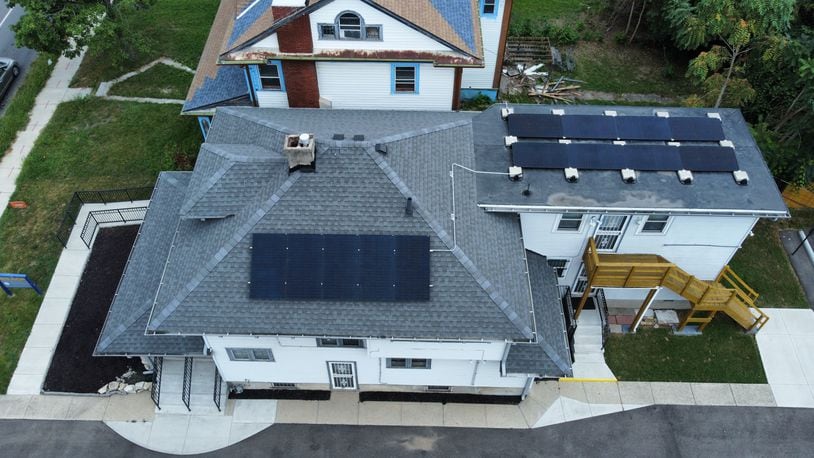The program is free to join and there is no obligation to buy anything, according to the group’s website. Businesses and non-profits will get a free solar roof review once they join the co-op.
For more information go to SolarUnitedNeighbors.org/mvsolar.
The residential-focused Miami Valley Solar Co-op program launched in September and has 37 members, which is more than enough needed to seek solar installation bids, but the co-op will keep residential enrolment open for several more months, Williams said. It is open to homeowners in Greene, Montgomery, Preble, Clark, Butler, Champaign, Drake, Miami and Warren counties.
Solar United Neighbors is a national nonprofit. It is funded through grants and fees paid by jurisdictions, including Dayton and Montgomery County, to provide its free services to businesses and residents interested in getting solar power systems or needing energy audits, which are provided through the University of Dayton sustainability program, Williams said.
Paying for the solar power system is the responsibility of the business or resident. Solar United Neighbors assists with research on various solar system installers and seeking bids from installers who then give the agreed upon price to everyone in the co-op, Williams said. The idea is that a group of businesses and nonprofits will get a better price from installers than they would get by going out for bids individually.
Solar United Neighbors does no sales or installations. Williams said the co-op is a way for businesses and residents to avoid the high-pressure sales tactics of some solar installation companies. Members get help deciding on what solar power system they need and navigating available tax credits, including new benefits from the federal Inflation Reduction Act.
It also can provide people with informational resources on comparing solar installation companies, keeps track of companies with poor records and provides information on how to resolve problems with solar installations or taking legal measures if a solar power system is not working properly. The group also advocates for public policy changes, Williams said.
“First and foremost we’re consumer advocates,” Williams said. “So we want to make sure you are getting the right system for your home and business.”
Follow @LynnHulseyDDN on Facebook, Instagram and X (formerly known as Twitter)
About the Author
